Shows

New Books in HistoryViolet Moller, "Inside the Stargazer's Palace: The Transformation of Science in 16th-Century Europe" (OneWorld, 2024)In 1543, Nicolaus Copernicus declared the earth revolved around the Sun, overturning centuries of scholastic presumption. A new age was coming into view – one guided by observation, technology and logic.
But omens and elixirs did not disappear from the sixteenth-century laboratory. Charms and potions could still be found nestled between glistening brass instruments and leather-bound tomes. The line between the natural and supernatural remained porous, yet to be defined.
From the icy Danish observatory of Tycho Brahe, to the smoky, sulphur-stained workshop of John Dee, in Inside the Stargazer’s Palace: The Transformation of Science in 16th-Ce...
2025-06-1837 min
NBN Book of the DayViolet Moller, "Inside the Stargazer's Palace: The Transformation of Science in 16th-Century Europe" (OneWorld, 2024)In 1543, Nicolaus Copernicus declared the earth revolved around the Sun, overturning centuries of scholastic presumption. A new age was coming into view – one guided by observation, technology and logic.
But omens and elixirs did not disappear from the sixteenth-century laboratory. Charms and potions could still be found nestled between glistening brass instruments and leather-bound tomes. The line between the natural and supernatural remained porous, yet to be defined.
From the icy Danish observatory of Tycho Brahe, to the smoky, sulphur-stained workshop of John Dee, in Inside the Stargazer’s Palace: The Transformation of Science in 16th-Ce...
2025-06-1840 min
New Books with Miranda MelcherViolet Moller, "Inside the Stargazer's Palace: The Transformation of Science in 16th-Century Europe" (OneWorld, 2024)In 1543, Nicolaus Copernicus declared the earth revolved around the Sun, overturning centuries of scholastic presumption. A new age was coming into view – one guided by observation, technology and logic.
But omens and elixirs did not disappear from the sixteenth-century laboratory. Charms and potions could still be found nestled between glistening brass instruments and leather-bound tomes. The line between the natural and supernatural remained porous, yet to be defined.
From the icy Danish observatory of Tycho Brahe, to the smoky, sulphur-stained workshop of John Dee, in Inside the Stargazer’s Palace: The Transformation of Science in 16th-Ce...
2025-06-1837 min
New Books in Early Modern HistoryViolet Moller, "Inside the Stargazer's Palace: The Transformation of Science in 16th-Century Europe" (OneWorld, 2024)In 1543, Nicolaus Copernicus declared the earth revolved around the Sun, overturning centuries of scholastic presumption. A new age was coming into view – one guided by observation, technology and logic.
But omens and elixirs did not disappear from the sixteenth-century laboratory. Charms and potions could still be found nestled between glistening brass instruments and leather-bound tomes. The line between the natural and supernatural remained porous, yet to be defined.
From the icy Danish observatory of Tycho Brahe, to the smoky, sulphur-stained workshop of John Dee, in Inside the Stargazer’s Palace: The Transformation of Science in 16th-Ce...
2025-06-1840 min
New Books in Science, Technology, and SocietyViolet Moller, "Inside the Stargazer's Palace: The Transformation of Science in 16th-Century Europe" (OneWorld, 2024)In 1543, Nicolaus Copernicus declared the earth revolved around the Sun, overturning centuries of scholastic presumption. A new age was coming into view – one guided by observation, technology and logic.
But omens and elixirs did not disappear from the sixteenth-century laboratory. Charms and potions could still be found nestled between glistening brass instruments and leather-bound tomes. The line between the natural and supernatural remained porous, yet to be defined.
From the icy Danish observatory of Tycho Brahe, to the smoky, sulphur-stained workshop of John Dee, in Inside the Stargazer’s Palace: The Transformation of Science in 16th-Ce...
2025-06-1840 min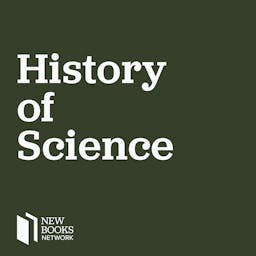
New Books in the History of ScienceViolet Moller, "Inside the Stargazer's Palace: The Transformation of Science in 16th-Century Europe" (OneWorld, 2024)In 1543, Nicolaus Copernicus declared the earth revolved around the Sun, overturning centuries of scholastic presumption. A new age was coming into view – one guided by observation, technology and logic.
But omens and elixirs did not disappear from the sixteenth-century laboratory. Charms and potions could still be found nestled between glistening brass instruments and leather-bound tomes. The line between the natural and supernatural remained porous, yet to be defined.
From the icy Danish observatory of Tycho Brahe, to the smoky, sulphur-stained workshop of John Dee, in Inside the Stargazer’s Palace: The Transformation of Science in 16th-Ce...
2025-06-1837 min
New Books in Western European StudiesViolet Moller, "Inside the Stargazer's Palace: The Transformation of Science in 16th-Century Europe" (OneWorld, 2024)In 1543, Nicolaus Copernicus declared the earth revolved around the Sun, overturning centuries of scholastic presumption. A new age was coming into view – one guided by observation, technology and logic.
But omens and elixirs did not disappear from the sixteenth-century laboratory. Charms and potions could still be found nestled between glistening brass instruments and leather-bound tomes. The line between the natural and supernatural remained porous, yet to be defined.
From the icy Danish observatory of Tycho Brahe, to the smoky, sulphur-stained workshop of John Dee, in Inside the Stargazer’s Palace: The Transformation of Science in 16th-Ce...
2025-06-1840 min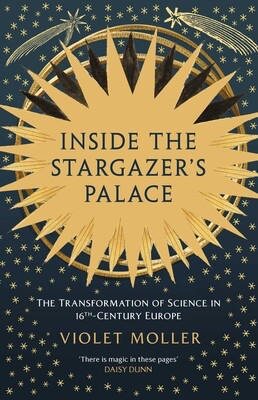
KPFA - Letters and PoliticsWhen Science & Magic IntermingledViolet Moller is a critically acclaimed and award-winning historian and author of Inside the Stargazer’s Palace: The Transformation of Science in 16th-Century Europe.
The post When Science & Magic Intermingled appeared first on KPFA.
2025-05-0500 min
Fantasy & Sci-Fi: The Author FilesFile #5 Process, Challenges & Trilogies with HANNAH KANERWe interview Hannah Kaner all about her new book “Faithbreaker”Hannah’s 3 book recommendations are:Idolfire by Grace Curtis The Map of Knowledge by Violet MollerThe Spear Cuts Through Water by Simon Jimenez Hosted on Acast. See acast.com/privacy for more information.
2025-04-0926 min
Quick Book Reviews with Philippa HallHannah Kaner Interview - Fallen Gods TrilogyInterview with Hannah Kaner about FAITHBREAKER Hannah recommends:Idolfire by Grace Curtis The Map of Knowledge by Violet MollerThe Spear Cuts Through Water by Simon Jimenez Hosted on Acast. See acast.com/privacy for more information.
2025-03-2826 min
Talking History with Patrick GeogheganBest of October BooksIn this episode of Talking History, our October books special: when Britain became a republic and why it ended in failure, with Prof Alice Hunt of the University of Southampton; magic and religious controversy in the 16th century, with Dr Violet Moller, author of Inside the Stargazer’s Palace: The Transformation of Science in 16th-Century Northern Europe; and how the CIA became an instrument of a new covert empire, with Prof Hugh Wilford of California State University.
2024-10-2053 min
New Books in Western European StudiesViolet Moller, "The Map of Knowledge: A Thousand-Year History of How Classical Ideas Were Lost and Found" (Doubleday, 2019)Violet Moller has written a narrative history of the transmission of books from the ancient world to the modern. In The Map of Knowledge: A Thousand-Year History of How Classical Ideas Were Lost and Found (Doubleday, 2019), Moller traces the histories of migration of three ancient authors, Euclid, Ptolemy and Galen, from ancient Alexandria in 500 to Syria and Constantinople, to Baghdad in 800, and then to Renaissance Venice in the 15th century. Moller demonstrates how tenuous were the chances of such ancient works’ survival, from the depredations of invading armies to the hazards of fire and flooding, to the problems of tr...
2024-09-021h 06
New Books in Science, Technology, and SocietyViolet Moller, "The Map of Knowledge: A Thousand-Year History of How Classical Ideas Were Lost and Found" (Doubleday, 2019)Violet Moller has written a narrative history of the transmission of books from the ancient world to the modern. In The Map of Knowledge: A Thousand-Year History of How Classical Ideas Were Lost and Found (Doubleday, 2019), Moller traces the histories of migration of three ancient authors, Euclid, Ptolemy and Galen, from ancient Alexandria in 500 to Syria and Constantinople, to Baghdad in 800, and then to Renaissance Venice in the 15th century. Moller demonstrates how tenuous were the chances of such ancient works’ survival, from the depredations of invading armies to the hazards of fire and flooding, to the problems of tr...
2024-09-021h 06
New Books in Early Modern HistoryViolet Moller, "The Map of Knowledge: A Thousand-Year History of How Classical Ideas Were Lost and Found" (Doubleday, 2019)Violet Moller has written a narrative history of the transmission of books from the ancient world to the modern. In The Map of Knowledge: A Thousand-Year History of How Classical Ideas Were Lost and Found (Doubleday, 2019), Moller traces the histories of migration of three ancient authors, Euclid, Ptolemy and Galen, from ancient Alexandria in 500 to Syria and Constantinople, to Baghdad in 800, and then to Renaissance Venice in the 15th century. Moller demonstrates how tenuous were the chances of such ancient works’ survival, from the depredations of invading armies to the hazards of fire and flooding, to the problems of tr...
2024-09-021h 06
New Books in Middle Eastern StudiesViolet Moller, "The Map of Knowledge: A Thousand-Year History of How Classical Ideas Were Lost and Found" (Doubleday, 2019)Violet Moller has written a narrative history of the transmission of books from the ancient world to the modern. In The Map of Knowledge: A Thousand-Year History of How Classical Ideas Were Lost and Found (Doubleday, 2019), Moller traces the histories of migration of three ancient authors, Euclid, Ptolemy and Galen, from ancient Alexandria in 500 to Syria and Constantinople, to Baghdad in 800, and then to Renaissance Venice in the 15th century. Moller demonstrates how tenuous were the chances of such ancient works’ survival, from the depredations of invading armies to the hazards of fire and flooding, to the problems of tr...
2024-09-021h 06
New Books in the History of ScienceViolet Moller, "The Map of Knowledge: A Thousand-Year History of How Classical Ideas Were Lost and Found" (Doubleday, 2019)Violet Moller has written a narrative history of the transmission of books from the ancient world to the modern. In The Map of Knowledge: A Thousand-Year History of How Classical Ideas Were Lost and Found (Doubleday, 2019), Moller traces the histories of migration of three ancient authors, Euclid, Ptolemy and Galen, from ancient Alexandria in 500 to Syria and Constantinople, to Baghdad in 800, and then to Renaissance Venice in the 15th century. Moller demonstrates how tenuous were the chances of such ancient works’ survival, from the depredations of invading armies to the hazards of fire and flooding, to the problems of tr...
2024-09-021h 05
New Books in Intellectual HistoryViolet Moller, "The Map of Knowledge: A Thousand-Year History of How Classical Ideas Were Lost and Found" (Doubleday, 2019)Violet Moller has written a narrative history of the transmission of books from the ancient world to the modern. In The Map of Knowledge: A Thousand-Year History of How Classical Ideas Were Lost and Found (Doubleday, 2019), Moller traces the histories of migration of three ancient authors, Euclid, Ptolemy and Galen, from ancient Alexandria in 500 to Syria and Constantinople, to Baghdad in 800, and then to Renaissance Venice in the 15th century. Moller demonstrates how tenuous were the chances of such ancient works’ survival, from the depredations of invading armies to the hazards of fire and flooding, to the problems of tr...
2024-09-021h 06
New Books in Ancient HistoryViolet Moller, "The Map of Knowledge: A Thousand-Year History of How Classical Ideas Were Lost and Found" (Doubleday, 2019)Violet Moller has written a narrative history of the transmission of books from the ancient world to the modern. In The Map of Knowledge: A Thousand-Year History of How Classical Ideas Were Lost and Found (Doubleday, 2019), Moller traces the histories of migration of three ancient authors, Euclid, Ptolemy and Galen, from ancient Alexandria in 500 to Syria and Constantinople, to Baghdad in 800, and then to Renaissance Venice in the 15th century. Moller demonstrates how tenuous were the chances of such ancient works’ survival, from the depredations of invading armies to the hazards of fire and flooding, to the problems of tr...
2024-09-021h 05
Not Just the TudorsThe Birth of Science in 16th Century EuropeThe traditional view of the birth of modern science places it firmly in the 17th century with such huge names as Bacon, Descartes, Newton, and Galileo. But a century earlier there were others - whose names are not so well-known to us - who paved the way for later scientific breakthroughs. Patrons and particular places in northern Europe developed new technology and encouraged collaborations in an environment where intellectual innovation could occur, laying the foundations for subsequent discoveries.In this edition of Not Just the Tudors, Professor Suzannah Lipscomb is joined by Violet Moller, whose new bo...
2024-04-2535 min
Penelope Scott(zkc) Download [pdf] The Map of Knowledge: How Classical Ideas Were Lost and Found: A History in Seven Cities by Violet Moller Free Ebook AudiobookDownload [pdf] The Map of Knowledge: How Classical Ideas Were Lost and Found: A History in Seven Cities by Violet Moller
Download PDF/EPUB Here ==> https://banyuputihan.blogspot.com/41563262-the-map-of-knowledge Download [pdf] The Map of Knowledge: How Classical Ideas Were Lost and Found: A History in Seven Cities by Violet Moller Read Online The Map of Knowledge: How Classical Ideas Were Lost and Found: A History in Seven Cities by Violet Moller is a great book to read and that's why I recommend reading or downloading ebook Th...
2023-09-1900 min
doyanutang[EPUB] [read] The Map of Knowledge: How Classical Ideas Were Lost and Found: A History in Seven Cities by Violet Moller [EPUB] [read] The Map of Knowledge: How Classical Ideas Were Lost and Found: A History in Seven Cities by Violet Moller Read Online The Map of Knowledge: How Classical Ideas Were Lost and Found: A History in Seven Cities by Violet Moller is a great book to read and that's why I recommend reading or downloading ebook The Map of Knowledge: How Classical Ideas Were Lost and Found: A History in Seven Cities for free in any format with visit the link button below. **Read Book Here ==> https://kesusuberi.blogspot.com/41563262-the-map-of-knowledge **Download Book...
2023-09-0100 min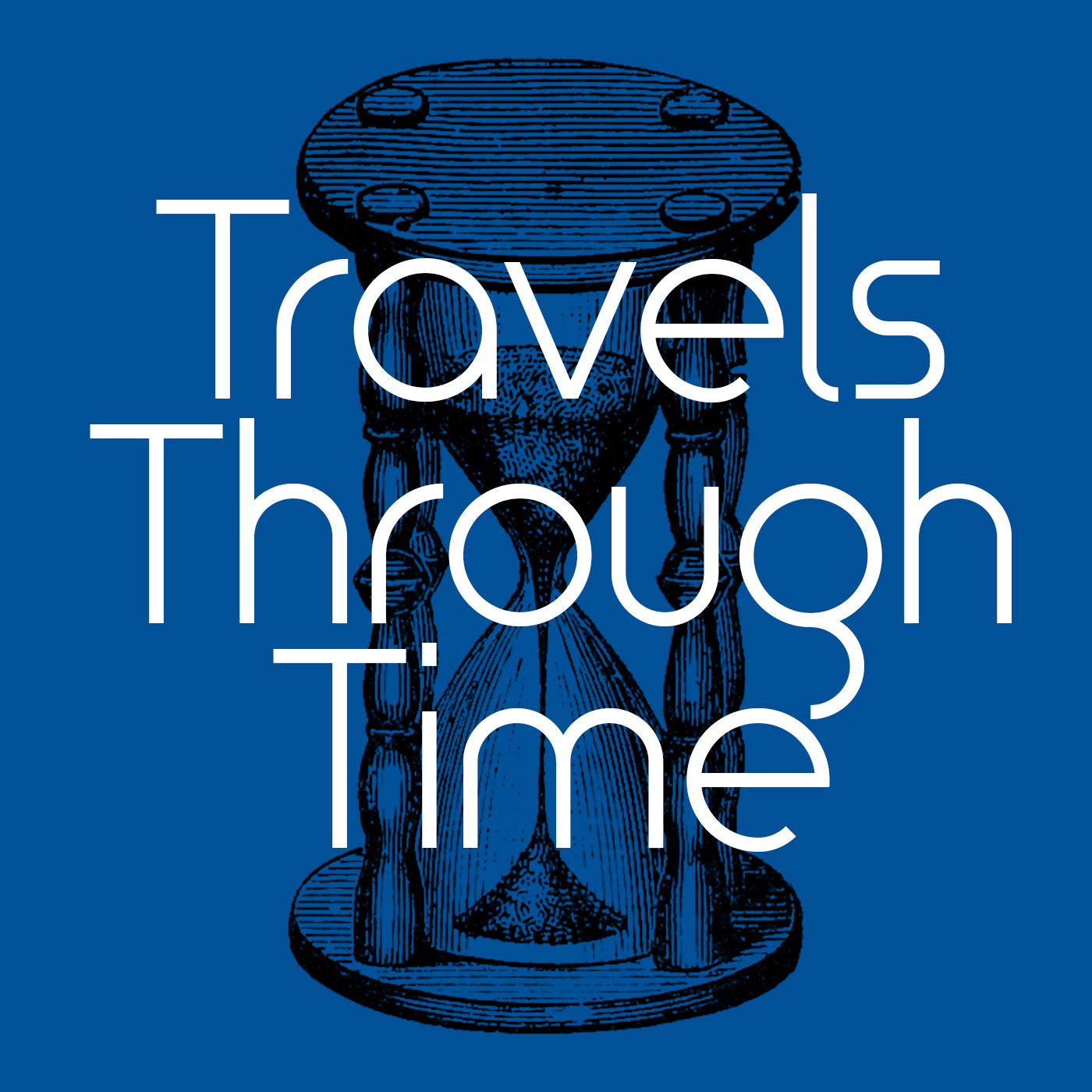
Travels Through Time[From the archive] Philip Hoare: Albert and the Whale (1520)In 1520 the artist Albrecht Dürer was on the run from the Plague and on the look-out for distraction when he heard that a huge whale had been beached on the coast of Zeeland. So he set off to see the astonishing creature for himself.
In this beautifully-evoked episode the award-winning writing Philip Hoare takes us back to those consequential days in 1520. We catch sight of Dürer, the great master of the Northern Renaissance, as he searches for the whale. This, he realises, is his chance to make his greatest ever print.
Philip Hoare is...
2023-07-1348 min
Travels Through Time[Live] Flora Fraser: Pretty Young Rebel (1746)In this special live episode, recorded at the Buckingham Literary Festival last weekend, the award-winning writer Flora Fraser takes us to one of the most remote places in the British Isles to witness the dramatic story of how her namesake Flora Macdonald helped Bonnie Prince Charlie escape after his failed attempt to take the throne from George II.
Their adventure is one of the most romantic and romanticised episodes in our history, sighed over and depicted by succeeding generations seduced by Flora’s bravery and charm.
Flora Fraser is the author of several acclaimed works of...
2023-06-2036 min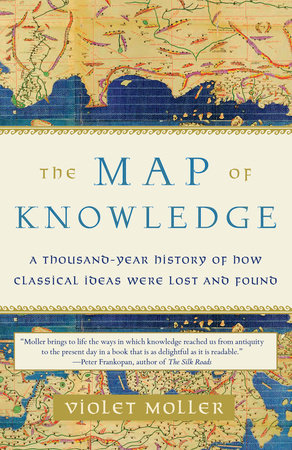
KPFA - Letters and PoliticsKPFA Special – The Map of KnowledgeGuest: Violet Moller is a historian and writer who specializes in intellectual history. She is the author of the book The Map of Knowledge: A Thousand-Year History of How Classical Ideas Were Lost and Found.
The post KPFA Special – The Map of Knowledge appeared first on KPFA.
2023-05-1800 min
Travels Through TimeSimon Winchester: Knowing What We Know (1924)It has been said that the past is another country, but the events we discuss in this episode feel all too familiar. Media interference in elections, Russian influence on Western politics, controversial immigration policy and the technology industry are all as close to the top of the agenda today as there were in 1924.
Today Violet is joined on a tour back to 1924 by the celebrated writer Simon Winchester. Simon is one of the great literary figures of his generation. His career as a journalist and an author spans the past half century, from reports on the Troubles...
2023-05-021h 02
Travels Through TimeAmy Jeffs: Tales from Medieval England (1327)This week we have an extra Friday episode for you. It’s with the multi-talented artist, historian and musician Dr Amy Jeffs. She takes us back to 1327, a year of high political drama when King Edward II of England was deposed by his wife, Isabella, and his teenage son, Edward III was crowned and began his fifty-year reign.
Jeffs spent her university years deep in the Middle Ages, studying palaeography, Anglo-Saxon, Old Norse and Middle Welsh, alongside more traditional art history courses.
Her fascination with words and images in manuscripts has led her to create tw...
2023-04-2148 min
Travels Through TimeNicholas Orme: A Year of Great Promise (1480)In the last decades of the fifteenth century, life in England was finally starting to settle down after years of upheaval and conflict during the Wars of the Roses which had riven society since the mid 1450s.
Waves of Plague had decimated the population, causing widespread distress but providing unexpected opportunities for those who survived. The cultural and political landscape were ripe for change.
This week’s guest, the distinguished historian Nicholas Orme, takes us back to this time. He guides us back to 1480, a year he describes as being ‘on the cusp’. ‘It is not exac...
2023-04-1853 min
Travels Through TimeJohn Darlington: The Port Royal Earthquake (1692)Today the archaeologist and executive director of World Monuments Fund, John Darlington, takes us on a dramatic trip back to the 1690s to witness a devastating earthquake in the Caribbean. Scroll down, too, for news of a special discount code.
***
After its capture by the English in 1655, Port Royal, Jamaica, became a place of great significance. Home to around 6,500 people by the 1690s, it was known variously as 'the fairest town of all the English plantations' and the ‘richest and wickedest city in the New World’.
Everything, though, changed on the morning of 7 June...
2023-04-1150 min
Travels Through TimeNicholas Spencer: The Great Debate (1860)This week we tackle the fascinating and complex relationship between science and religion, in the company of the academic and writer Nicholas Spencer.
Spencer takes us back to a dramatic moment of conflict that began at the end of the 1850s with the publication of Charles Darwin’s On The Origin of the Species. This book ignited a fierce debate about his new theory of natural selection and of humanity’s place in the world.
The feud would become increasingly bitter over the year that followed. It would ultimately lead to the famous Oxford debate betw...
2023-03-0754 min
Travels Through TimeChristopher Hadley: Roman Roads and the Invasion of Britain (51 AD)Nothing symbolises the might of imperial Rome like their roads. Expertly engineered and perfectly cambered, they were the arteries of the great empire through which merchants, armies and information flowed.
In this episode we will follow one of those lost roads back in time to the very beginning of the Roman occupation of Britain, in the company of the writer Christopher Hadley. He takes us back to 51 AD, a turning point in the invasion, when Caratacus, King of the Catuvellauni Tribe and leader of the British resistance, was defeated and capitulated to his Roman adversaries.
...
2023-02-2855 min
Travels Through TimeJames Hall: Michelangelo and Leonardo in Florence (1504)In the early sixteenth century, some of the world’s most famous works of art were being created, many of them in Florence and Rome. In this episode, the acclaimed art historian James Hall takes us back to 1504, just as Michelangelo was finishing his monumental statue of David, the first of its size in the modern era.
His great rival, Leonardo da Vinci, also in Florence at this time, was on the committee to decide where the statue should be placed. The original idea of hoisting it hundreds of feet into the air to the top of th...
2023-02-1454 min
Travels Through TimeMarion Turner: The Wife of Bath (1397)It is difficult to hear the stories of medieval women, but one voice rings down the ages, clear as a bell. Alison, the Wife of Bath, is Geoffrey Chaucer’s most famous creation: irrepressible, hilarious, insightful. She is the star of The Canterbury Tales with her outrageous stories and touching honesty.
An inspiration for a huge range of writers – from William Shakespeare to Margaret Atwood and Zadie Smith – she is the sparkling subject at the heart of Marion Turner’s new book, The Wife of Bath: A Biography.
In this episode Turner takes us back to 1397...
2023-01-3154 min
Kreuzverhör PodcastKreuzgehört 2022In unserer Sonderfolge zum Jahresende lassen wir nochmal die bisherigen Episoden dieses Jahres Revue passieren und freuen uns über ein kurzes Wiederhören unserer diesjährigen Gäste, die uns in diesem Rahmen ihre musikalischen Jahres-Highlights verraten. Mit dabei sind:Hassan Haider (BUREAU HAIDER, PATSY O' HARA), Philipp Wulff (MESSER, RITUAL), Laura Hahn (WEAK TIES), Daniel Prieß (Music Video Director, DEEZ NUTS, LIGHT YOUR ANCHOR), Andy Heinrich (DEATHRITE, RUMOURS), André Liegl (Grafikdesigner, ACHEBORN, THE DATA BREAK), Markus Koch (KOLOSS SKATEBOARDS, BLACK HEAVEN SHOP, DISMALFUCKER), Joachim Hiller (OX FANZINE, FINEST VINYL), Alex Bujack...
2022-12-311h 16
Travels Through TimeHarry Sidebottom: The Mad Emperor (218)We have our fair share of bizarre rulers in the twenty-first century, but the subject of today’s episode makes Putin, Trump and Kim Jong Il seem rather tame. According to the Oxford academic and bestselling novelist Harry Sidebottom, our guide this week, the Roman Emperor Heliogabalus was the maddest and baddest of them all.
Heliogabalus turned Rome upside down as he rampaged over political and religious tradition during his lust-fuelled, four-year reign, contributing to the instability and chaos of the later third century AD.
In this special end of year episode, we get into th...
2022-12-271h 01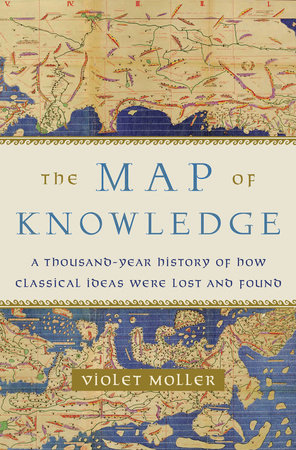
KPFA - Letters and PoliticsHow the Islamic Empires Saved the Classical WorldGuest: Violet Moller is a historian and writer who specializes in intellectual history. She is the author of the book The Map of Knowledge: A Thousand-Year History of How Classical Ideas Were Lost and Found.
The post How the Islamic Empires Saved the Classical World appeared first on KPFA.
2022-12-2659 min
Travels Through TimePhilip Mansel: Louis XIV, The Sun King (1700)In this episode Philip Mansel takes us inside the court of King Louis XIV at Versailles, probably the most lavish, extraordinary royal palace ever built.
Versailles was a place where the fun never stopped. There were parties, plays, banquets, firework displays and concerts. Life at court was a giddy carousel of extravagance, culture, beauty, wit, sophistication and intrigue.
As the decorated historian Philip Mansel tells us in this sparkling episode, Versailles was the centre of power, politics and pleasure. It was the home of the royal family and the nobility, a hotbed of conspiracy and...
2022-12-1358 min
Kreuzverhör PodcastFolge 14 - Jess HilgenfeldJess Hilgenfeld ist Sängerin bei SWOON und tätowiert in Leipzig bei VIOLET SKIN TATTOO.In der 14. Folge unseres Podcasts berichtet sie von ihren ersten Schritte als Tätowiererin in der WG Küche, von den Reaktionen auf ihre ersten Tattoos, woher sie die Inspirationen für ihre Arbeiten nimmt und was sie wohl niemals stechen würde.Außerdem erfahrt Ihr, welchen Einfluss BILLY TALENT auf Jess' musikalischen Werdegang hatten, welches Konzert ihr Leben für immer verändern sollte und was aktuell und zukünftig alles bei SWOON auf dem Plan steht. Illustra...
2022-11-2740 min
Travels Through TimeMurray Pittock: Scotland Reborn (1967)On 2 November 1967 Winnie Ewing shocked the political establishment when she won the Scottish seat of Hamilton for the Scottish National Party. As today’s guest, Professor Murray Pittock explains, so began a month that would radically re-shape modern British politics.
***
For British politics the 1960s was a testing time. While the country experienced its fabled cultural flowering, it simultaneously had to come to terms with its reduced place in the world. Decolonisation was going ahead at pace. Sterling was losing its power as a currency. In geo-politics Britain did not know where to turn: to th...
2022-11-2249 min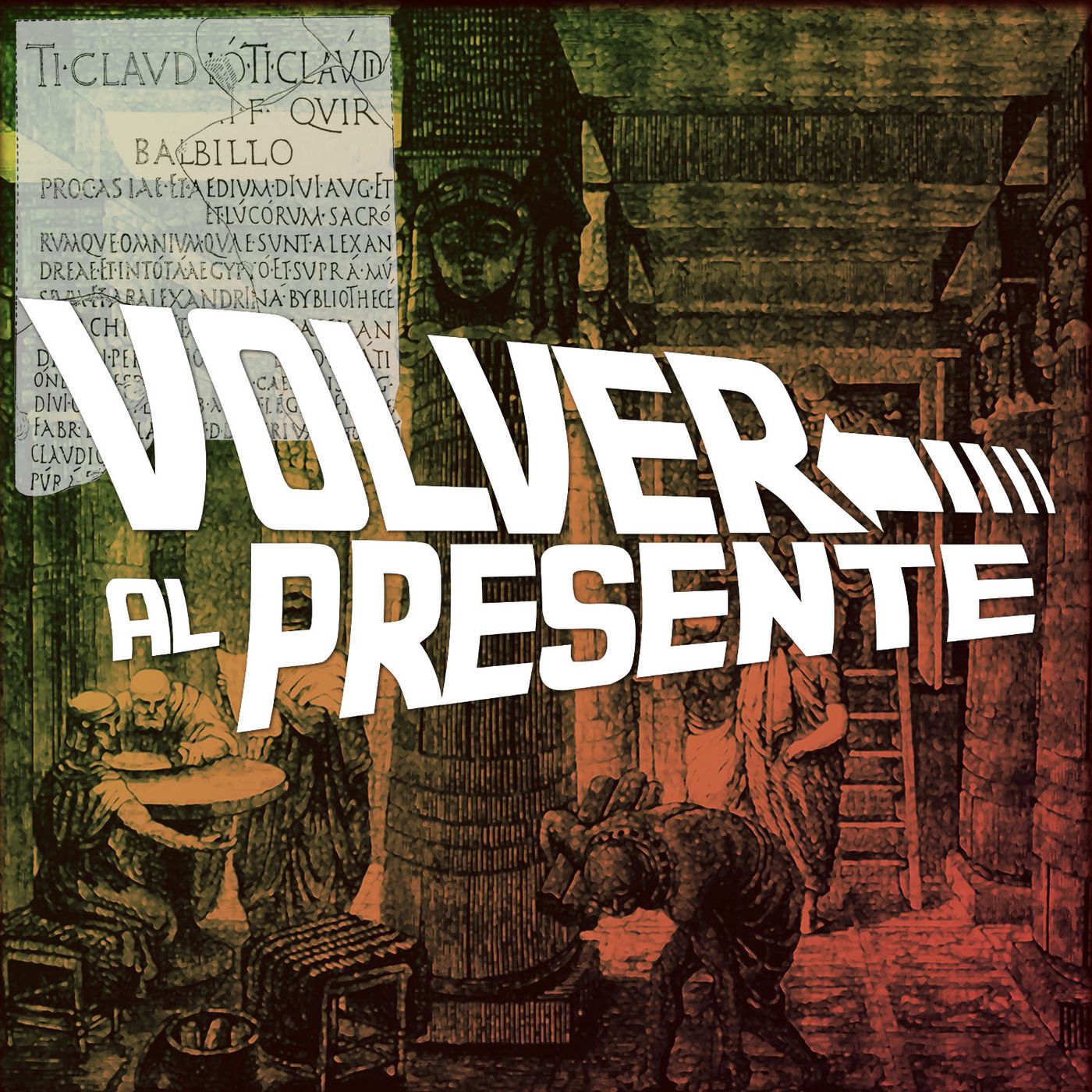
Volver al PresenteXXX - BibliotecasEn el día internacional de las bibliotecas (24 de octubre) les contamos una historia de las bibliotecas, desde Alejandría hasta hoy.Apóyanos en Patreon: https://www.patreon.com/randomaccesshistory Encuentra todos nuestros links aquí: https://flow.page/randomaccesshistory Para explorar más:Harris, Michael H. History of Libraries in the Western World. Metuchen, N.J. : Scarecrow Press, 1984. http://archive.org/details/historyoflibrari0000harr.History of Libraries and LIS Professions - Part 1, 2015. https://www.youtube.com/watch?v=0YFedRl68Lo.«IFLA-UNESCO Public Library Manifesto 2022.pdf». Accedido 18 de octubre de 2022. https://repository.ifla.org/bitstream...
2022-10-2214 min
Travels Through TimeLucy Wooding: Tudor England (1558)Having watched the second Elizabethan era draw to a close in recent weeks, it is fitting that in this episode we are going back to the beginning of the first Elizabethan era – the moment when Mary Tudor died leaving the throne to her younger half-sister.
These two queens, the first women to rule England in their own right, were divided by their faith. The greatest challenge facing Elizabeth on her accession was to unite a country which was polarised by religion, having passed from hard-line Protestantism under Edward VI back to Catholicism with Mary.
Our le...
2022-10-1151 min
Travels Through TimeDamian Dibben: Venice and ‘The Colour Storm’ (1510)This week we are off to see some of the Renaissance masters at work with the acclaimed novelist Damian Dibben.
*
In the early years of the sixteenth century Venice was not only a place of great power it was a site of huge cultural splendour. In particular a new generation of artists were animating the buildings like never before. And unlike many of the other Renaissance painters, the Venetians were not solely obsessed by line and form; they were equally interested in the allure and possibility of colour.
In this episode (with a s...
2022-10-0643 min
Travels Through Time[Live] Oskar Jensen: Vagabonds (1815)Welcome to a very special live recording of Travels Through Time, made at the Chalke Valley History Festival.
Under the sun of a midsummer day in southern England, Violet Moller sat down for a chat, and a song, with a fascinating young historian. Oskar Jensen took Violet back to the year 1815 and introduced her to several characters from his new book, Vagabonds: Life on the Streets of Nineteenth Century London.
Oskar Jensen completed a doctorate at Christ Church, Oxford before being awarded a Leverhulme Early Career Fellowship. He is currently teaching at the University of...
2022-07-0658 min
Travels Through TimeMichael Wood: Alfred the Great and the Vikings (878)This week we are travelling back to the ninth century to witness one of the major turning points in English history.
Winston Churchill regularly tops ‘the greatest Briton of all time’ charts, but his own vote for this accolade apparently went to the man we are going to discuss today.
Alfred 'the Great' is the only English monarch to enjoy such an admiring epithet. Æthelred, the later monarch, is remembered as ‘the Unready’ (although this meant poorly advised rather than unprepared), William I is either ‘the conqueror’ or ‘the bastard’ depending on your point of view – no other m...
2022-06-281h 04
Travels Through TimeJohn Goodall: A History of the Castle (1217)In this episode we strap on our armour and brace ourselves for battle! From the monumental ruins of strongholds like Conwy and Dover to the fantastical turrets of Hogwarts, castles are an important element in our vision of the past. They played a vital role in history, as centres of defence and political power, the physical foundation of royal and noble authority.
This week, we are travelling through time with the acclaimed architectural historian John Goodall. His new book The Castle: A History tells the stories of these influential buildings through riveting snapshots at various moments in t...
2022-05-3142 min
Travels Through TimeDr Suzie Sheehy: The Matter of Everything (1932)In this episode, we are donning our lab coats and gaining access to the secrets of particle physics. We visit 1932, an astonishing year in the history of science across the world, from Carl Anderson’s rooftop cloud chamber in California, to Marietta Blau’s mountaintop experiments in Austria, via the Cavendish Lab at the University of Cambridge.
Our guest is Dr Suzie Sheehy. Dr Sheehy is unusual for Travels Through Time – she is a scientist rather than a historian – but she is also quite unusual within her own field of accelerator physics. Firstly, because she is a woman, a...
2022-05-101h 05
Travels Through TimeBronwen Riley: Journey to Britannia (130 AD)This week we are setting sail for the Roman province of Britannia to traverse the empire's north-western frontier – Hadrian's Wall.
Hadrian’s Wall is the largest archaeological feature remaining from Roman Britain, a 73-mile line of fortifications stretching from the River Tyne on the east coast to the Solway Firth on the west. Building was begun by the Emperor Hadrian in 122 AD, during a visit to this remote, unruly corner of his empire. Astonishingly, only five percent has been excavated to date, so new finds and evidence are unearthed surprisingly often.
In this episode we follo...
2022-05-0349 min
Travels Through TimeMary Wellesley: Hidden Hands (1413)This week we head to fifteenth-century Norwich to meet two of the most extraordinary women in medieval England: Margery Kempe and Julian of Norwich.
Manuscripts are one of the most tangible sources of evidence we have about the distant past and our guest this week, Mary Wellesley, has dedicated her professional life to studying them and persuading them to give up their secrets. In her spellbinding book, Hidden Hands: the Lives of Manuscripts and their Makers, she reveals traces left by the people who made these vital artefacts. As she explains, manuscripts are ‘the only connection we hav...
2022-04-1952 min
Travels Through TimeMargaret Willes: In The Shadow of St. Paul’s Cathedral (1666)This week we revisit one of the most dangerous and dramatic moments in London's history through the prism of one of its most iconic buildings: St. Paul's Cathedral.
When we think of modern London, the places that spring to mind are Buckingham Palace, the Houses of Parliament and Piccadilly Circus, but the true heart of the city lies far to the east, on Ludgate Hill. St Paul’s Cathedral has been at the centre of London for over a millennium, a hub of religion, politics, news, education, publishing, and of course, shopping. In her beautiful new book, In...
2022-04-0547 min
Travels Through TimeSeb Falk: The Astronomer and the Astrolabe (1327)In this episode we venture on a journey of scientific discovery and meet one of the most important figures in English medieval science.
Geoffrey Chaucer has gone down in history as the ‘father of English literature’ and his Canterbury Tales are celebrated across the globe as the earliest work of fiction in that language. Less well known, but equally important, is his Treatise on the Astrolabe, the first technical manual written in English, in which he describes how to make and use these extraordinary instruments. Astrolabes were calculating devices, the smartphones of their day, which enabled scholars to m...
2022-03-1556 min
Travels Through TimeNadine Akkerman: Elizabeth Stuart, Queen of Hearts (1620)In Women’s History Month we take a look back at a figure who has been misrepresented by successive generations of historians. Elizabeth Stuart, was the goddaughter of Elizabeth I and sister of the ill-starred Charles I of England. She was someone who played an active part on the times in which she lived. In this episode the Dutch historian Nadine Akkerman takes us back to meet a woman who was known as ‘The Queen of Hearts.’
In her riveting new book, Elizabeth Stuart, Queen of Hearts, Nadine Akkerman draws back the curtain on centuries of hearsay and pr...
2022-03-1148 min
Love Letters to...Violet Jessop and Lillian Moller GilbrethIn today's Love Letters to... we celebrate two women more people should know about. Melissa has the story of Violet Jessop, a woman you may not want to board a boat with, and Alicia praises an unsung hero who made all our lives a little easier.Advertise with us! Learn more about your ad choices. Visit megaphone.fm/adchoicesSee Privacy Policy at https://art19.com/privacy and California Privacy Notice at https://art19.com/privacy#do-not-sell-my-info.
2022-03-0325 min
Love Letters to...Violet Jessop and Lillian Moller GilbrethIn today's Love Letters to... we celebrate two women more people should know about. Melissa has the story of Violet Jessop, a woman you may not want to board a boat with, and Alicia praises an unsung hero who made all our lives a little easier.Advertise with us! Learn more about your ad choices. Visit megaphone.fm/adchoices
2022-03-0327 min
Travels Through TimeChristopher de Bellaigue: Suleyman the Magnificent (1534)This week we travel back to the Islamic year 941 which straddles 1534/5 of our own calendar, a particularly deadly year in the reign of the Ottoman Emperor, Suleyman the Magnificent.
There was no shortage of extraordinary rulers in the sixteenth century: Ivan the Terrible towered over Russia, England had its own Gloriana, Elizabeth I, Charles V governed the vast Holy Roman Empire, while in India, the Emperor Akbar transformed Mughal culture. But every one of these mighty potentates cowered in the shadow of the man who ruled the Ottoman Empire between 1520 and 1566 - Suleyman the Magnificent.
I...
2022-03-0158 min
Travels Through TimeAndrew Pettegree and Arthur der Weduwen: A History of the Library (1850)Of all the accomplishments of human civilisation, the creation of libraries, making the preservation and transmission of knowledge possible, is surely the greatest. In this episode the academics Andrew Pettegree and Arthur der Weduwen take us back to 1850, a pivotal moment in the history of public libraries.
Andrew Pettegree and Arthur der Weduwen’s new book, The Library, A Fragile History, takes on the ‘long and tumultuous history’ of these noble institutions, from the clay tablets of ancient Nineveh to the problematic Google Books project (inspired, like so many other attempts to ‘encompass the world’s knowledge’, by the librar...
2022-02-2254 min
Travels Through TimeDr Priya Atwal: The Rise and Fall of the Sikh Empire (1837)In this episode of Travels Through Time we attend a magnificent Sikh royal wedding which was as much carefully orchestrated political theatre as it was the union of two people before god.
Indian weddings are famous for their exuberance and that of Prince Nau Nihal Singh, who married Bibi Nanaki Kaur Atariwala in 1837, may well have been the most extravagant of all time.
This lavish month-long celebration was an emotional moment for the young Prince’s grandparents, Ranjit Singh, ‘the lion of Punjab’, Maharajah and founder of the splendid Sikh dynasty that ruled northern India from 179...
2022-02-0150 min
Travels Through TimeDavid Bosco: The Struggle to Rule the Ocean (1982)In this delightfully modern episode of Travels Through Time we are setting sail for an adventure on the high seas.
Our guest is David Bosco, author of The Poseidon Project, The Struggle to Govern the World’s Oceans, in which he charts the efforts of international organisations to create consensus and establish a structure of globally recognised rules for the oceans.
In this episode David takes us back to 1982, a fraught year on the high seas when Britain was battling Argentina in the South Atlantic for control of the Falkland Islands and the waters around th...
2022-01-2552 min
Travels Through TimeRoderick Beaton: Herodotus and the Birth of Written History (447 BCE)This week we are going back to witness the birth of history
as a written discipline.
Our guide on this long journey into the ancient world has spent his life
studying and teaching Greek language and culture, but it was when he retired from academia that Professor Roderick Beaton found the time to write the book he had been dreaming about since he first visited Greece as a teenager. The Greeks, A Global History is a masterful, sweeping journey through 3500 years of history that tells the stories of Greek people, their language and their culture.
2022-01-1157 min
Book Talk Today with Aun Abdi#55: Best of 2021 - Book Talk TodayOn Episode #55 I will be walking you 10 of my favourite moments from the podcast this year and talking about why I liked them so much. 2021 was a great year for the podcast. Not only did we have some amazing guests on the podcast, but we also grew massively around the world with listeners all over the globe, so thank you all for listening and supporting the podcast. I am eternally grateful to you all.
Episodes in Order of this Video:
#28 with Nick Velasquez - https://www.youtube.com/watch?v=suNaFzchn0k&t=4...
2021-12-2951 min
Travels Through TimeChristmas with the Three Wise Historians (2021)In this Christmas special of Travels Through Time our three wise presenters Peter, Violet and Artemis get together to remember some of their favourite books and episodes from the last year on the podcast.
Thank you so much to all of our listeners for joining us over the course of the year and happy Christmas!
As ever, much, much more about this episode is to be found at our website tttpodcast.com.
Click here to order the books discussed in this episode from John Sandoe’s who, we are delighted to say, are sup...
2021-12-2455 min
Travels Through TimeElizabeth Drayson: The Last Muslim Sultan of Granada (1492)This week we head to Granada in southern Spain to witness one of the most important years in the history of not only Europe, but the whole world.
In 711 a band of Berber tribesmen made the short voyage from North Africa to Southern Spain, landing near Gibraltar. The land they found mesmerised them with its beauty and natural abundance, they settled down, built cities and were joined by Arabs from across the vast Muslim Empire who made al-Andalus their home.
Towards the end of the eleventh century, Christian Europeans began the long process of Reconquista, r...
2021-12-1454 min
Travels Through TimeTracy Borman: Elizabeth I and the Spanish Armada (1588)Historians often refer to the reign of Queen Elizabeth I as being England’s Golden Age. And of all the forty-five years in which she was the monarch, the year 1588 stands out as the most dramatic. It was a year of peril, a year of valour and a year of heartbreak.
In this episode bestselling historian and novelist Tracy Borman takes us back to the anxiety-ridden days of 1588. We watch on as the queen makes a speech that will pass into legend. We hover close by as one of her most famous portraits is painted. And we se...
2021-11-1648 min
Travels Through TimeJames Clark: The Dissolution of the Monasteries (1540)Long into the sixteenth century monasteries remained a familiar and vital part of English society. Wherever you were in the kingdom – Yorkshire, Cornwall, London, the Lakes – it was almost certain that there was a monastery just a short walk away.
And yet within a few short years in the 1530s, 850 of these institutions vanished for good. The dissolution of the monasteries really was, today's guest, James Clark argues, ‘the great drama of Henry VIII’s Reformation’. It was the process that had 'the most immediate impact on the largest number of people.'
In this episode Cla...
2021-11-021h 03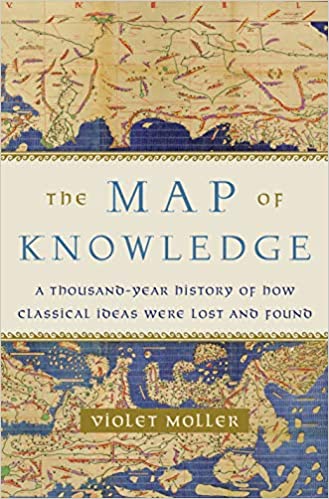
KPFA - Letters and PoliticsKPFA Special – The Map of KnowledgeGuest: Violet Moller is a historian and writer who specializes in intellectual history. She is the author of the book The Map of Knowledge: A Thousand-Year History of How Classical Ideas Were Lost and Found.
The post KPFA Special – The Map of Knowledge appeared first on KPFA.
2021-10-0659 min
Book Talk Today with Aun Abdi#40: Reframe The Day: Embracing The Craft of Life, One Day at a Time: Interview with Adam LowensteinOn Episode #40 of the Book Talk Today podcast we are joined by Adam Lowenstein(@adamlowenstein)
Adam M. Lowenstein spent eight years working in American government and politics in the United States, most recently as speechwriter and strategic communications advisor in the United States Senate.
We discussed:
📚 Reading challenging book
📚 Enjoying the process
📚 In depth discussion about ‘Amusing Ourselves to Death’
📚 Many book recommendations.
Timestamps
[0:00] - Intro
[1:49] - Adam's experience of publishing a book after one year
[5:36] - Practising wha...
2021-08-182h 24
Book Talk Today with Aun Abdi#37: The Map of Knowledge - A History in Seven Cities: Interview with Violet MollerOn Episode #37 of the Book Talk Today podcast we are joined by Violet Moller.
Violet is an independent historian with a particular interest in the history of ideas and how knowledge has been transmitted through the centuries. She has a Ph.D on the libraries in Early Modern Britain and is host of the Travels Through Time history podcast which asks a wide range of brilliant historians which year they would chose if they could travel back in time. Today we will be discussing her book, 'The Map of Knowledge: How Classical Ideas Were Lost and Found: A...
2021-07-291h 01
YoVirtualizadorYoVirtualizador 1x49 Crisis de tiempos en tiempos de crisisYoVirtualizador 1x49 Crisis de tiempos en tiempos de crisis
Hoy traigo unas cuantas ideas un tanto fuera de contexto, pero es que en algún momento tenía que sacar este capítulo.
El libro del que hablo es La ruta del conocimiento, de Violet Moller
https://amzn.to/2In0hgb
Y el canal de breveseñas lo tiene analizado aquí https://www.youtube.com/watch?v=6U3Bk67lBaU
El teletrabajo es algo bueno, pero necesita disciplina.
La idea de marcar como obsoleto un contenido me parece de lo más útil cuando no hay tiempo.
YoVirtualizador en formato podcast...
2020-11-0918 min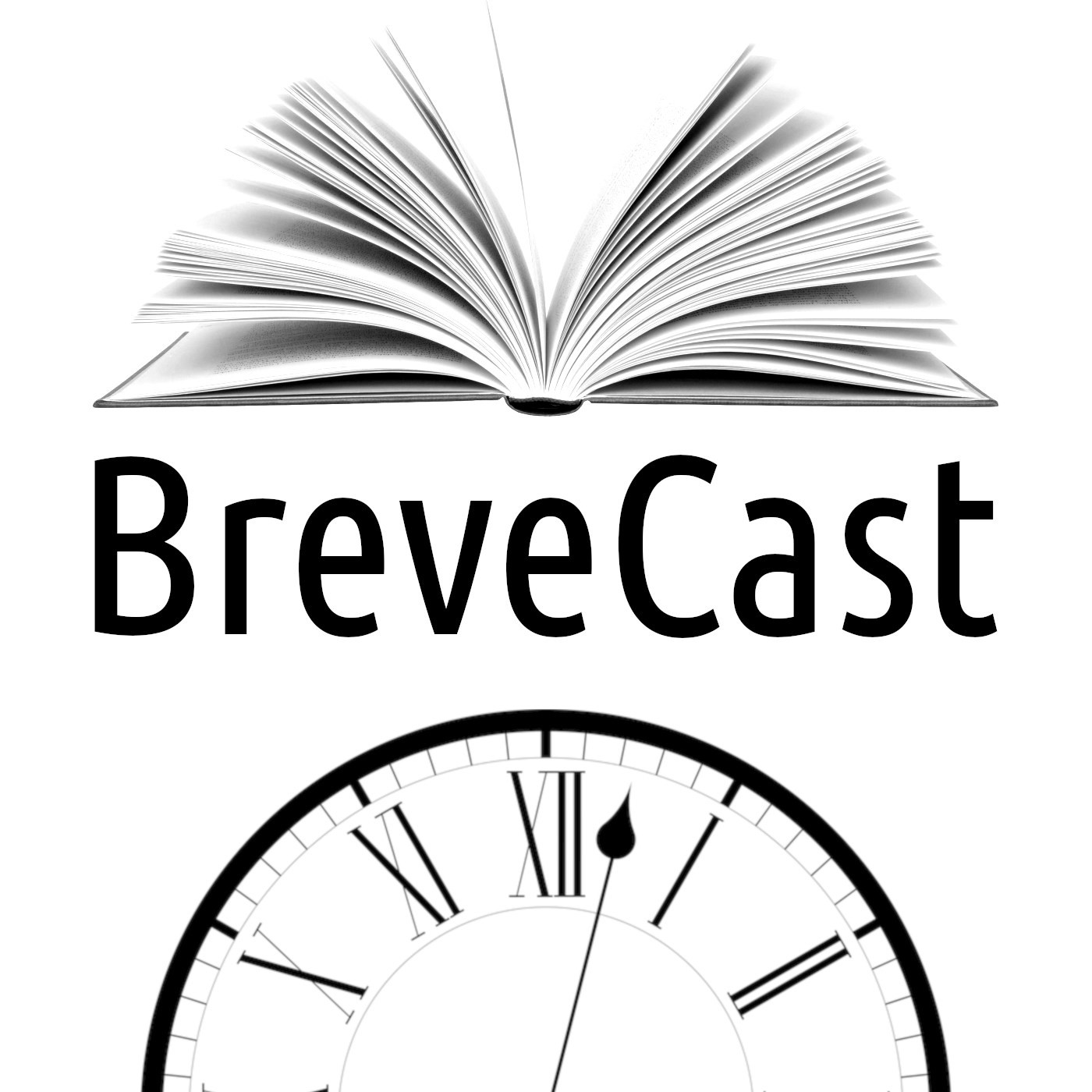
BreveCastBreveCast 32 - La ruta del conocimiento, de Violet Mollerbreve reseña de La ruta del conocimiento, de Violet Moller.
2020-04-2802 min
New Books in Ancient HistoryViolet Moller, "The Map of Knowledge: A Thousand-Year History of How Classical Ideas Were Lost and Found" (Doubleday, 2019)Violet Moller has written a narrative history of the transmission of books from the ancient world to the modern. In The Map of Knowledge: A Thousand-Year History of How Classical Ideas Were Lost and Found (Doubleday, 2019), Moller traces the histories of migration of three ancient authors, Euclid, Ptolemy and Galen, from ancient Alexandria in 500 to Syria and Constantinople, to Baghdad in 800, and then to Renaissance Venice in the 15th century. Moller demonstrates how tenuous were the chances of such ancient works’ survival, from the depredations of invading armies to the hazards of fire and flooding, to the problems of tr...
2019-07-311h 05
New Books in the History of ScienceViolet Moller, "The Map of Knowledge: A Thousand-Year History of How Classical Ideas Were Lost and Found" (Doubleday, 2019)Violet Moller has written a narrative history of the transmission of books from the ancient world to the modern. In The Map of Knowledge: A Thousand-Year History of How Classical Ideas Were Lost and Found (Doubleday, 2019), Moller traces the histories of migration of three ancient authors, Euclid, Ptolemy and Galen, from ancient Alexandria in 500 to Syria and Constantinople, to Baghdad in 800, and then to Renaissance Venice in the 15th century. Moller demonstrates how tenuous were the chances of such ancient works’ survival, from the depredations of invading armies to the hazards of fire and flooding, to the problems of tr...
2019-07-311h 05
New Books in Big IdeasViolet Moller, "The Map of Knowledge: A Thousand-Year History of How Classical Ideas Were Lost and Found" (Doubleday, 2019)Violet Moller has written a narrative history of the transmission of books from the ancient world to the modern. In The Map of Knowledge: A Thousand-Year History of How Classical Ideas Were Lost and Found (Doubleday, 2019), Moller traces the histories of migration of three ancient authors, Euclid, Ptolemy and Galen, from ancient Alexandria in 500 to Syria and Constantinople, to Baghdad in 800, and then to Renaissance Venice in the 15th century. Moller demonstrates how tenuous were the chances of such ancient works’ survival, from the depredations of invading armies to the hazards of fire and flooding, to the problems of tr...
2019-07-311h 05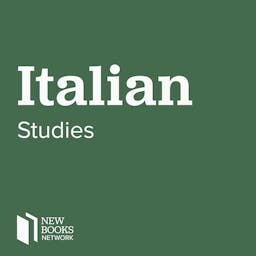
New Books in Italian StudiesViolet Moller, "The Map of Knowledge: A Thousand-Year History of How Classical Ideas Were Lost and Found" (Doubleday, 2019)Violet Moller has written a narrative history of the transmission of books from the ancient world to the modern. In The Map of Knowledge: A Thousand-Year History of How Classical Ideas Were Lost and Found (Doubleday, 2019), Moller traces the histories of migration of three ancient authors, Euclid, Ptolemy and Galen, from ancient Alexandria in 500 to Syria and Constantinople, to Baghdad in 800, and then to Renaissance Venice in the 15th century. Moller demonstrates how tenuous were the chances of such ancient works’ survival, from the depredations of invading armies to the hazards of fire and flooding, to the problems of tr...
2019-07-311h 05
New Books in ScienceViolet Moller, "The Map of Knowledge: A Thousand-Year History of How Classical Ideas Were Lost and Found" (Doubleday, 2019)Violet Moller has written a narrative history of the transmission of books from the ancient world to the modern. In The Map of Knowledge: A Thousand-Year History of How Classical Ideas Were Lost and Found (Doubleday, 2019), Moller traces the histories of migration of three ancient authors, Euclid, Ptolemy and Galen, from ancient Alexandria in 500 to Syria and Constantinople, to Baghdad in 800, and then to Renaissance Venice in the 15th century. Moller demonstrates how tenuous were the chances of such ancient works’ survival, from the depredations of invading armies to the hazards of fire and flooding, to the problems of tr...
2019-07-311h 05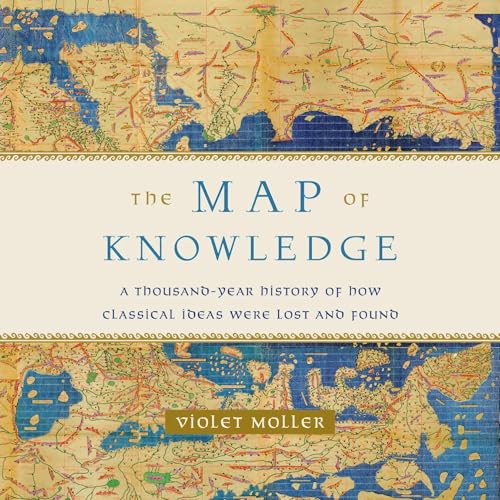
Journey Through The Uplifting Full Audiobook Now, Story Seekers!The Map of Knowledge by Violet MollerPlease visithttps://thebookvoice.com/podcasts/2/audible/129506to listen full audiobooks.
Title: The Map of Knowledge
Author: Violet Moller
Narrator: Susan Duerden
Format: mp3
Length: 8 hrs and 46 mins
Release date: 05-14-19
Ratings: 4.5 out of 5 stars, 117 ratings
Genres: Medieval
Publisher's Summary:
The foundations of modern knowledge - philosophy, math, astronomy, geography - were laid by the Greeks, whose ideas were written on scrolls and stored in libraries across the Mediterranean and beyond. But as the vast Roman Empire disintegrated, so did appreciation of these precious texts. Christianity cast a shadow over so-called pagan thought, books were burned, and the library of...
2019-05-148h 46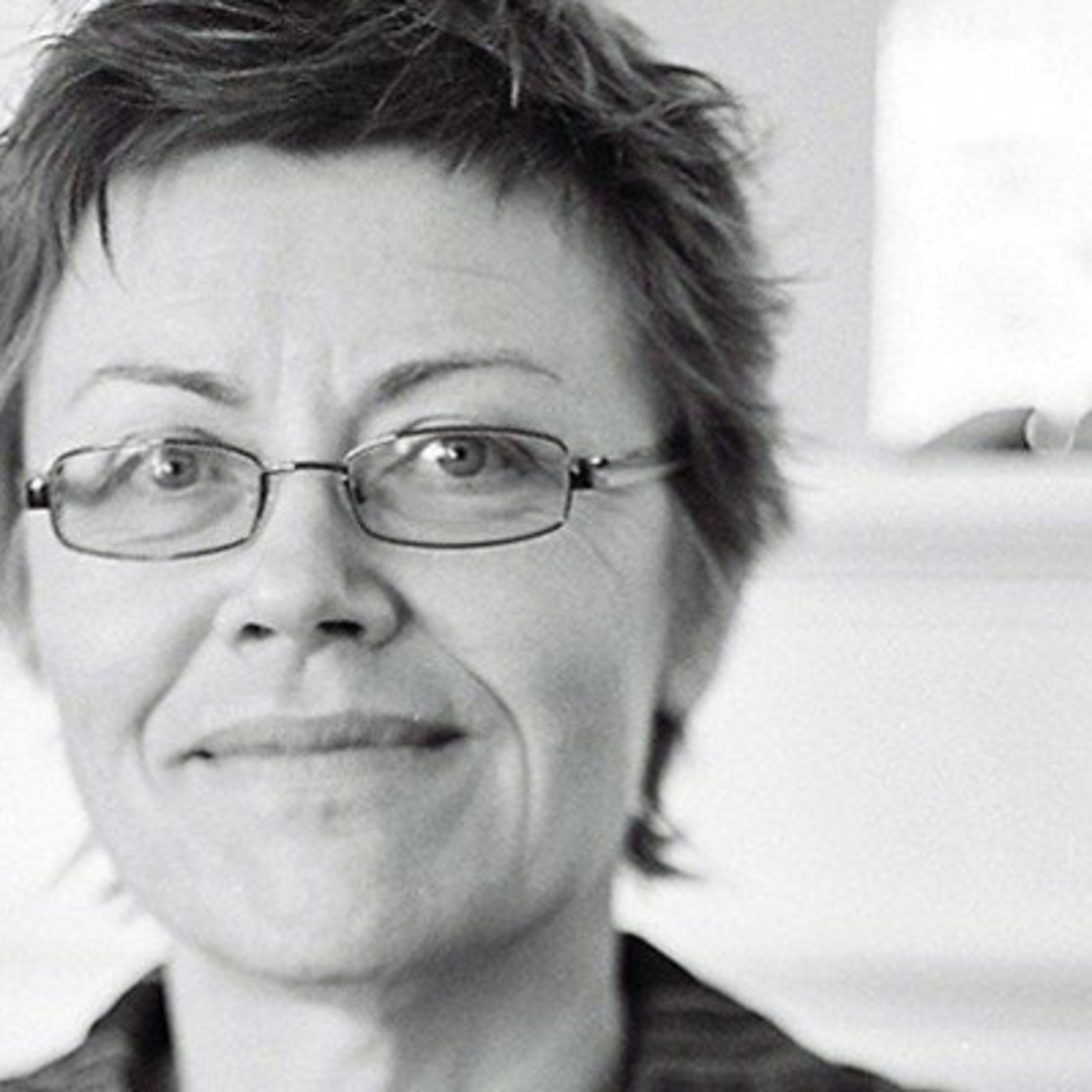
crow with no mouth radiocrow with no mouth radio episode #26The second of three episodes dedicated to the Edition Wandelweiser catalogue. André O. Möllermusik für orgel und eine(n) tonsetzer(in) (2003)~Eva-Maria Houben,organ Mark HannessonMemory Sustained (2014)~ Roger Admiral, piano Eva-Maria Houbenbicinium II / quatuor 1b (2012) from Orgelbuch~Houben, organ Johan LindvallWinnaretta Singer / Violet Trefusis / Romaine Brooks (2015)~Lindvall, piano from Solo/Ensemble Dedicated to Sergio Merce
2019-02-0352 min